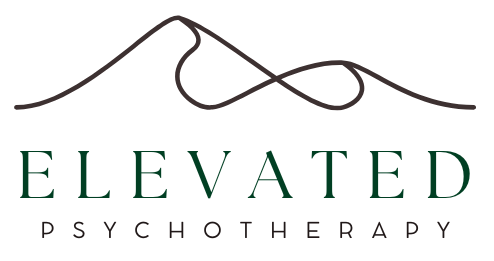Recognizing the Impact of Systemic Oppression on Mental Health
My therapeutic approach is rooted in feminist and anti-oppressive principles, acknowledging that mental health challenges are shaped by systemic forces like racism, sexism, ableism, classism, and more. These influences can create unique stressors, traumas, and barriers to personal growth. Healing is possible in a space that values and affirms your experiences.
What is Feminist Therapy?
Feminist therapy empowers individuals by addressing how gender and power dynamics affect mental health. Originally focused on sexism and patriarchy, feminist therapy now embraces intersectionality, recognizing that diverse identities (such as being LGBTQ+ or neurodivergent) create complex experiences.
- Feminist therapy explores how oppressive systems shape your identity, relationships, and mental health.
- It focuses on deconstructing internalized messages that undermine self-worth.
- This approach fosters personal empowerment and helps you reclaim agency in your life.
- Additionally, many men face unique mental health challenges rooted in toxic masculinity, rigid gender roles, and emotional suppression. They can also benefit from a feminist approach!
What is Anti-Oppressive Therapy?
Anti-oppressive therapy addresses the mental health impacts of all systems of oppression, including racism, ableism, classism, heterosexism, and xenophobia. This approach focuses on understanding how inequities shape lived experiences and teaches you how to foster resilience in the face of adversity.
- Anti-oppressive therapy provides a space where all aspects of your identity are valued and celebrated.
- It examines how systemic barriers affect personal well-being and relationships.
- This approach supports healing from the harm caused by oppression, while building strategies for navigating these systems.
My Approach
Therapy is collaborative, grounded in mutual respect, and tailored to one’s unique experiences. The therapeutic relationship becomes a partnership where you are supported in identifying and addressing the forces that impact your mental health. Together, we work to dismantle harmful narratives, honor your strengths, and create a path towards a life aligned with your values.
Who Can Benefit?
Feminist and anti-oppressive therapy is especially beneficial for those navigating:
- Marginalized identities, including LGBTQ+, neurodivergent, BIPOC, and ENM communities.
- Trauma and self-doubt rooted in societal systems of oppression.
- Challenges with self worth, identity, or relationships in the context of system inequities.
- A desire for healing that considers both personal and social contexts.

Why These Approaches are Essential
Feminist and anti-oppressive therapy goes beyond traditional models by addressing the root causes of mental health challenges within societal systems. While many therapies focus on individual change, these approaches recognize that systemic oppression and inequities profoundly shape mental health, self-esteem, and relationships. Here’s why integrating these perspectives is beneficial:
Acknowledging the Bigger Picture
- Mental health challenges often stem from more than personal struggles. Experiences of racism, sexism, ableism, and other forms of systemic oppression can lead to chronic stress, trauma, social isolation, and feelings of alienation.
- Without acknowledging these influences, therapy risks placing undue responsibility on the individual for circumstances shaped by larger societal systems.
Empowerment and Agency
- These approaches help clients reclaim their sense of agency by identifying how external systems impact their lives. Recognizing that these challenges are not only personal, can reduce self-blame and open pathways for healing and problem solving.
- By validating lived experiences, feminist and anti-oppressive therapy creates a foundation for self-empowerment and meaningful change in personal and systemic contexts.
Creating a Safe, Inclusive Space
- Many traditional therapy models may unintentionally reinforce power imbalances or fail to account for cultural and systemic influences. Feminist and anti-oppressive therapy prioritize equity and inclusion, ensuring that clients feel seen, understood, and affirmed in all aspects of their identity.
Promoting Systemic Change
- These approaches encourage clients to not only heal personally, but also engage in larger systemic shifts. Understanding how societal structures contribute to mental health challenges empowers clients to advocate for change in the world around them.
By addressing the interconnectedness of personal and systemic experiences, feminist and anti-oppressive therapy provides a comprehensive and compassionate framework for healing. These approaches honor the complexity of client lives and emphasize that mental health is both a personal and societal journey.

